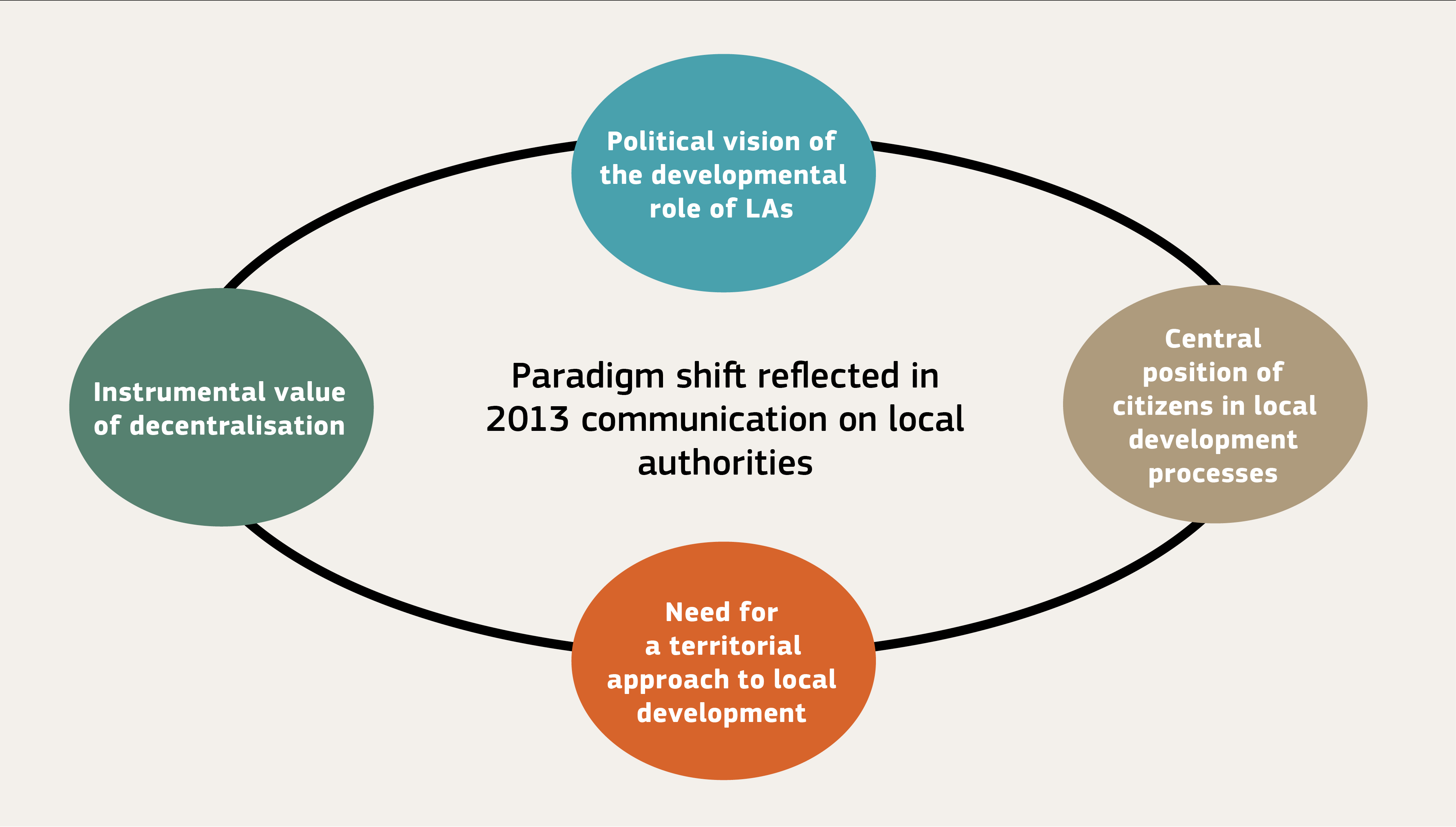Policy evolution and lessons learnt coming from several decades of support to decentralisation reforms have paved the road for a structured dialogue (2010-2011) that brought together the EC, the European Parliament and EU Member States with CSOs & LAs from all over the world. All these have shaped the content of the 2013 EC Communication “Empowering local authorities in partner countries for enhanced governance and more effective development outcomes”, a landmark document that represent a real shift.
Some salient quotes from the EC 2013 communication of empowering LAs
Centrally-led, top-down development policies and programmes cannot alone succeed in addressing the complexities of sustainable development and fighting poverty. Public and private actors have their role to play especially at local level’ (p. 2).
‘In the last two decades, many central governments have attributed responsibilities to Local Authorities [through decentralisation reforms]… However, this political recognition has not always been accompanied by an adequate level of autonomy, capacity development and financial resources, leaving their empowerment incomplete’ (p. 2).
‘The quality of local governance is primarily linked to the political willingness of central governments to create a conducive environment at local level, through legal and regulatory instruments, allowing Local Authorities to benefit from sufficient levels of autonomy in exercising power’ (p. 3).
This implies that ‘from an operational point of view, the new EU approach would promote enhanced political, administrative and fiscal autonomy of Local Authorities, through decentralisation reforms, capacity and institutional development’ (p. 5).
‘The participation of citizens in decision-making processes that affect their lives and access to accountability mechanisms is fundamental to the promotion of sustainable development and poverty reduction’ (p. 3).
‘Decentralisation is inherently a political question’ (p. 6). Hence, ‘EU support to decentralisation processes will be based primarily on the understanding of the political economy of the reforms’ (p. 6).
‘The quality of local governance is also related to the way local authorities manage and implement public policies on the basis of local policymaking processes and interactions with other public institutions, citizens and private sector and through the allocation of available resources’ (p. 3).
‘[A] territorial approach to local development should be promoted… [It] is characterised as a dynamic bottom-up and long-term process based on a multi-actor and multi-sector approach, in which different local institutions and actors work together to define priorities, and plan and implement development strategies’ (p. 5).
|
|
To go further... read this
- The European Commission 2013 communication, ‘Empowering local authorities in partner countries for enhanced governance and more effective development outcomes’
|
|
To go further... watch this
|

